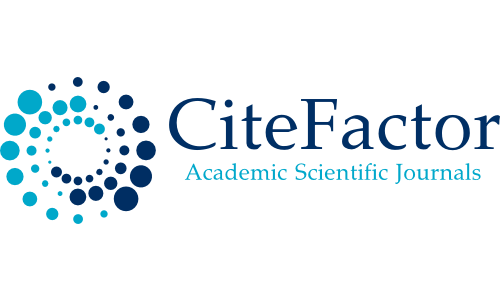Analisis Pengaruh Ketidakpastian Lingkungan Bisnis Terhadap Kreativitas Organisasi pada Industri Fotografi di Pekanbaru
DOI:
 https://doi.org/10.37859/mrabj.v4i1.4414
https://doi.org/10.37859/mrabj.v4i1.4414
Abstract
Penelitian ini bertujuan menguji dampak ketidakpastian lingkungan bisnis meliputi ketidakpastian pasar, ketidakpastian teknologi dan ketidakpastian pesaing terhadap kreativitas organisasi pada industri fotografi. Studi ini dilakukan dengan metode survei melalui penyebaran kuesioner kepada responden secara langsung. Sampel yang digunakan merupakan pemilik dan karyawan fotografi di Pekanbaru. Data dianalisis dengan metode regresi linier berganda. Hasil menunjukan bahwa ketidakpastian pasar dapat membuat kreativitas organisasi melemah, namun ketidakpastian teknologi sebaliknya ditemukan dapat menjadi daya dorong organisasi dalam meningkatkan kreativitas yang lebih baik. Penelitian ini juga menemukan bahwa ketidakpastian persaingan yang dikelola dengan baik bisa membawa daya dorong bagi peningkatan kreativitas organisasi. Temuan ini berimplikasi bahwa ketidakpastian lingkungan bisnis yang dialami usaha potografi akan sulit menghasilkan kreativitas positif jika manajemen gagal memahami peluang yang muncul dalam lingkungan bisnisnya.
Downloads
References
Abdullah, P. M. (2015). Metodologi Penelitian Kuantitatif. Yogyakarta : Aswaja Pressindo.
Alliyah, S. (2015). Pengaruh Intensitas Kompetisi Pasar Terhadap Kinerja Manajer UKM Melalui Informasi Sistem Akuntansi Manajemen. E-Jurnal Ekonomi Dan Bisnis Universitas Udayana, 8(1), 501–521.
Arieftiara, D. (2018). Ketidakpastian Lingkungan Bisnis , Keputusan Investasi dan Kinerja Perusahaan pada Industri Manufaktur. Journal of Accounting and Business Dynamics, 5(2), 163–178.
Arieftiara, D., Utama, S., & Wardhani, R. (2017). Environmental uncertainty as a contingent factor of business strategy choice decision: Introducing an alternative measurement of uncertainty. Australasian Accounting, Business and Finance Journal, 11(4), 116–130.
Byttebier, I., & Vullings, R. (2015). Creativity In Business. Amsterdam : BIS Publishers.
Darvishmotevali, M., Altinay, L., & Köseoglu, M. A. (2020). The link between environmental uncertainty, organizational agility, and organizational creativity in the hotel industry. International Journal of Hospitality Management, 87(1), 490–499.
Ellram, L. M., Tate, W. L., & Feitzinger, E. G. (2013). Factor-Market Rivalry and Competition for Supply Chain Resources. Journal of Supply Chain Management, 49(1), 29–46.
Ghozali, Imam. (2018). Aplikasi Analisis Multivariate Dengan Program IBM SPSS 25. Semarang : Badan Penerbit Universitas Diponegoro.
Huo, B., Ye, Y., Zhao, X., Wei, J., & Hua, Z. (2018). Environmental uncertainty, specific assets, and opportunism in 3PL relationships: A transaction cost economics perspective. International Journal of Production Economics, 203(1), 154–163.
Jahanshahi. (2016). Disentangling the emergence of perceived environmental uncertainty among technology entrepreneurs. 45(6), 962–972.
Kemenparekraf. (2020). Statistik ekonomi kreatif 2020. Pusat Data dan Sistem Informasi Kementerian Pariwisata dan Ekonomi Kreatif/Badan Pariwisata dan Ekonomi Kreatif.
Kessler, E. (2013). Charismatic Theory of Leadership. United States of America : SAGE Publications Inc.
Kim, K. K., Ryoo, S. Y., & Lee, H. (2015). Environmental uncertainty and interorganizational information sharing: Accommodating manufacturer and supplier perspectives. Information Development, 32(5), 1485–1502.
Koch, J., Wenzel, M., Senf, N. N., & Maibier, C. (2018). Organizational Creativity as an Attributional Process: The Case of Haute Cuisine. Organization Studies, 39(2–3), 251–270.
Köseoglu, M. A., Topaloglu, C., Parnell, J. A., & Lester, D. L. (2013). Linkages among business strategy, uncertainty and performance in the hospitality industry: Evidence from an emerging economy. International Journal of Hospitality Management, 34(1), 81–91.
Lestari, E., Silalahi, R., & Annasa, D. (2015). Pengaruh Kapabilitas Sumberdaya dan Top Management Supportterhadap Inovasi dan Moderasi Ketidakpastian Lingkungan Terhadap Risiko Inovasi. Agrointek, 15(1), 146–161.
Liu, T., & Gao, H. (2022). Does Supply Chain Concentration Affect the Performance of Corporate Environmental Responsibility? The Moderating Effect of Technology Uncertainty. Sustainability (Switzerland), 14(2).
Long, Y., Li, P., & You, B. (2015). Knowledge transfer, governance mechanisms in alliance and environmental uncertainty. Emerald Insight, 8(3), 438–472.
Miraza, Z., & Hafas, H. (2018). Dampak Keragaman Sumber Daya Portofolio Aliansi Terhadap Inovasi https://www.fortyouncewines.com/ Dengan Pemoderasi Ketidakpastian Pasar dan Pengalaman Aliansi. Angewandte Chemie International Edition, 6(11), 951–952.
Pandjaitan, D., & Ahmad, A. (2017). Metode Penelitian Untuk Bisnis. Bandar Lampung : Aura Publishing.
Parnell, J. A. (2013). Strategic management (4th ed.). United State of America : SAGE Publications Inc.
Sugaya, T., & Takahashi, S. (2013). Coordination failure in repeated games with private monitoring. Journal of Economic Theory, 148(5), 1891–1928.
Tetteh, E. K., & Essegbey, G. O. (2014). Firm-level innovation: The case of Ghanaian firms. European Journal of Business and Innovation Research, 2(2), 1–18.
Xiao, C., Petkova, B., Molleman, E., & van der Vaart, T. (2019). Technology uncertainty in supply chains and supplier involvement: the role of resource dependence. Supply Chain Management, 24(6), 697–709.
Downloads
Published
How to Cite
Issue
Section
License
Copyright (c) 2023 Muhammadiyah Riau Accounting and Business Journal

This work is licensed under a Creative Commons Attribution-NonCommercial-NoDerivatives 4.0 International License.
Authors who publish with this journal agree to the following terms:
- Authors retain copyright and grant the journal right of first publication with the work simultaneously licensed under a Creative Commons Attribution License that allows others to share the work with an acknowledgment of the work's authorship and initial publication in this journal.
- Authors are able to enter into separate, additional contractual arrangements for the non-exclusive distribution of the journal's published version of the work (e.g., post it to an institutional repository or publish it in a book), with an acknowledgment of its initial publication in this journal.
- Authors are permitted and encouraged to post their work online (e.g., in institutional repositories or on their website) prior to and during the submission process, as it can lead to productive exchanges, as well as earlier and greater citation of published work












